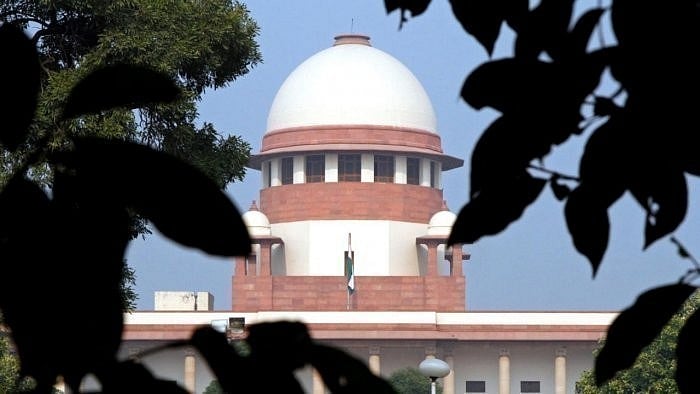
The Supreme Court of India.
Credit: PTI File Photo
New Delhi: The Supreme Court has allowed a plea against preventive detention of a man allegedly engaged in organised smuggling, as the detaining authorities failed to consider conditions imposed on him while he was out on bail were sufficient enough to prevent him from further indulging in such activities.
On a plea by Jyoti Kitty Joseph, a bench of Justices Sudhanshu Dhulia and K Vinod Chandran set aside the detention order of May 9, 2024 issued against her husband under Conservation of Foreign Exchange and Prevention of Smuggling Activities Act, 1974.
"We are not concerned as to whether the conditions imposed by the Magistrate would have taken care of the apprehension expressed by the detaining authority; of the detenu indulging in further smuggling activities.
"We are more concerned with the aspect that the detaining authority did not consider the efficacy of the conditions and enter any satisfaction, however subjective it is, as to the conditions not being sufficient to restrain the detenu from indulging in such activities," the bench said.
The jurisdictional Magistrate had ordered release of the detenue on April 16, 2024 on certain conditions.
The detenu was allegedly found by the Directorate of Revenue Intelligence to have indulged in the activities amounting to smuggling under both the Customs Act and the COFEPOSA Act. The detention order sought to curb the activities of the detenues, alleged to be a habitual offender and a key person of the well-organised syndicate involved in smuggling and disposal of foreign gold brought illegally into India from Dubai, for profiteering and putting the national economy into danger.
It was alleged after release from jail in Baroda in October, 2013 on bail by the Supreme Court, the detenu had officially changed his name from 'Afzal Haroon Batatawala' to 'Sameer Haroon Marchant'.
In its judgment on March 6, 2025, the court, however, noted nothing was stated by the detaining authority as to why the bail conditions are not sufficient to prevent the detenu from engaging in further activities of smuggling.
It found the detention order was "silent" on this aspect.
"We interfere with the detention order only on the ground of the detaining authority having not looked into the conditions imposed by the Magistrate while granting bail for the very same offence," the bench said.
Notably, the bench examined this "compelling ground" as the 'sentinel on the qui vive' (watchful guardian of democracy and fundamental rights), though it was not argued by the petitioner's counsel.
If there has been a consideration of those conditions, then the reasonableness of the consideration could not have been scrutinised by in judicial review, the bench pointed out.
